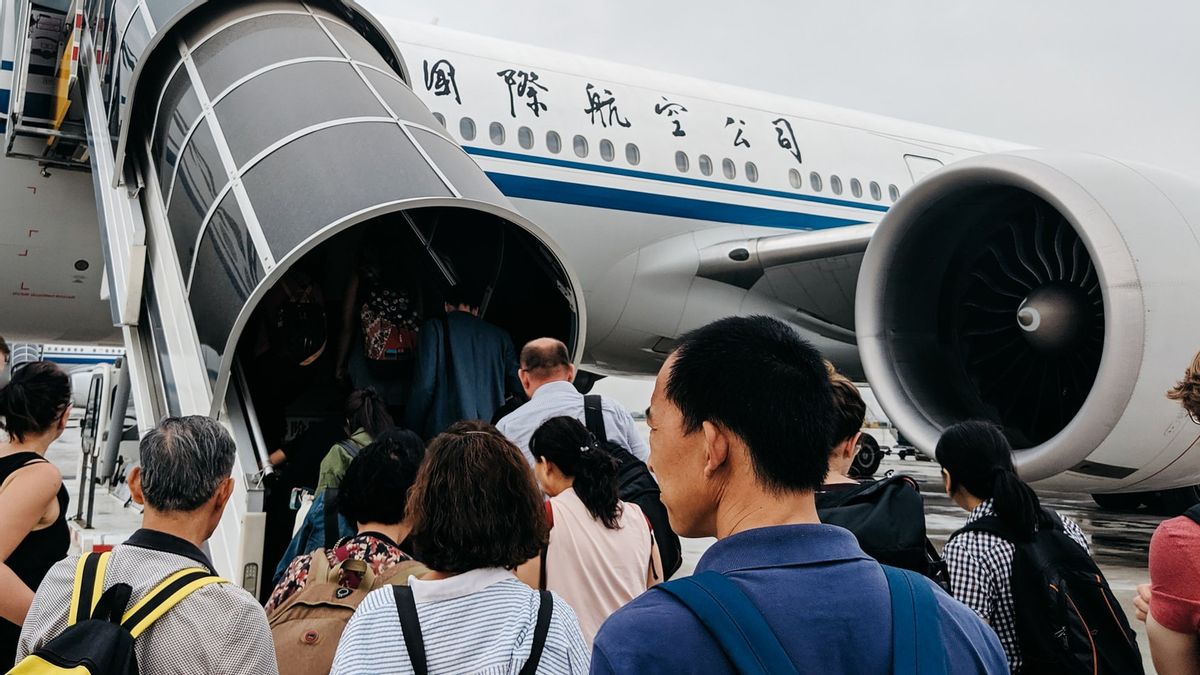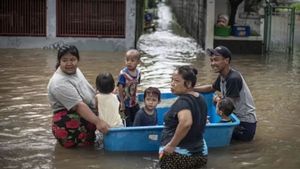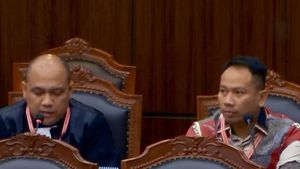JAKARTA - Public Policy Observer Agus Pambagio considers that the regulations made by the government regarding the control of the spread of COVID-19 in Indonesia collide, even inconsistently. This shows that the government is not serious in handling the problem.
Since the beginning, long before the first positive case of COVID-19 was found in the country, precisely in February, Agus claimed to have contacted the Director General of Air Transportation and also the Minister of Transportation to advise the government to temporarily close Sam Ratulangi, Ngurah Rai and Cengkareng Airports from charter flights and schedule from and to China.
But unfortunately, this suggestion was not welcomed. The government chose to keep open access for foreign tourists from China to enter Indonesia. In fact, at that time COVID-19 had spread in China.
"The answer is no, because 40 percent of our tourists come from China. I'm really surprised, but never mind I am not the decision maker. At least I remind you," he said, in a virtual discussion, Monday, December 21.
After there is transmission, said Agus, only then will various regulations be issued relating to the control of the COVID-19 pandemic, such as Large-Scale Social Restrictions (PSBB), transportation regulations and others. However, the result is ambiguous.
Moreover, the regulations issued by the Ministry of Transportation and other ministries collide because there is a word 'but / except' in the regulation. This led to a prolonged polemic.
"These kinds of things should not happen. But I always say that all regulations must be synchronized, must comply with the existing rules in Law Number 20 of 2011. Because if you do not participate it will be wrong again," he explained.
Then the government issued another policy during Eid, in which the government prohibited people from going home. However, another circular (SE) appeared which collided again, so that inconsistency of statutory regulations occurred. Moreover, SE cannot be used as a control for the implementation of legislation. Because it is an appeal and it is proven ineffective in the field.
"When we are appealed, Indonesians cannot be appealed, they must be given administrative sanctions. Meanwhile, the regulations do not exist except in Law Number 6 of 2018. But the sanctions can only be in the Law and in the Regional Regulation," he explained.
After the COVID-19 cases surged, local governments both East Java and DKI Jakarta issued new regional regulations (Perda). Of course, said Agus, this step is very long too late.
"During Eid there is a very high spike and it will be repeated during the November Eid if I'm not mistaken. We need to realize that the graph has not dropped. DKI is always the highest because the sample is increasing. In other places the sample is less than 1 million people. WHO recommendation, "he said.
Not only are the regulations inconsistent, said Agus, the tracing steps taken by the government are also bad, one positive person should be traced by 30 people. But it doesn't exist. So, positive cases of COVID-19 will continue to rise, and it is not certain how long.
"We are already running, PSBB has been relaxed, there are transitions, there are lots of it, but there are no sanctions. So we are actually released, from the start we have our own immunity," he explained.
The English, Chinese, Japanese, Arabic, and French versions are automatically generated by the AI. So there may still be inaccuracies in translating, please always see Indonesian as our main language. (system supported by DigitalSiber.id)













